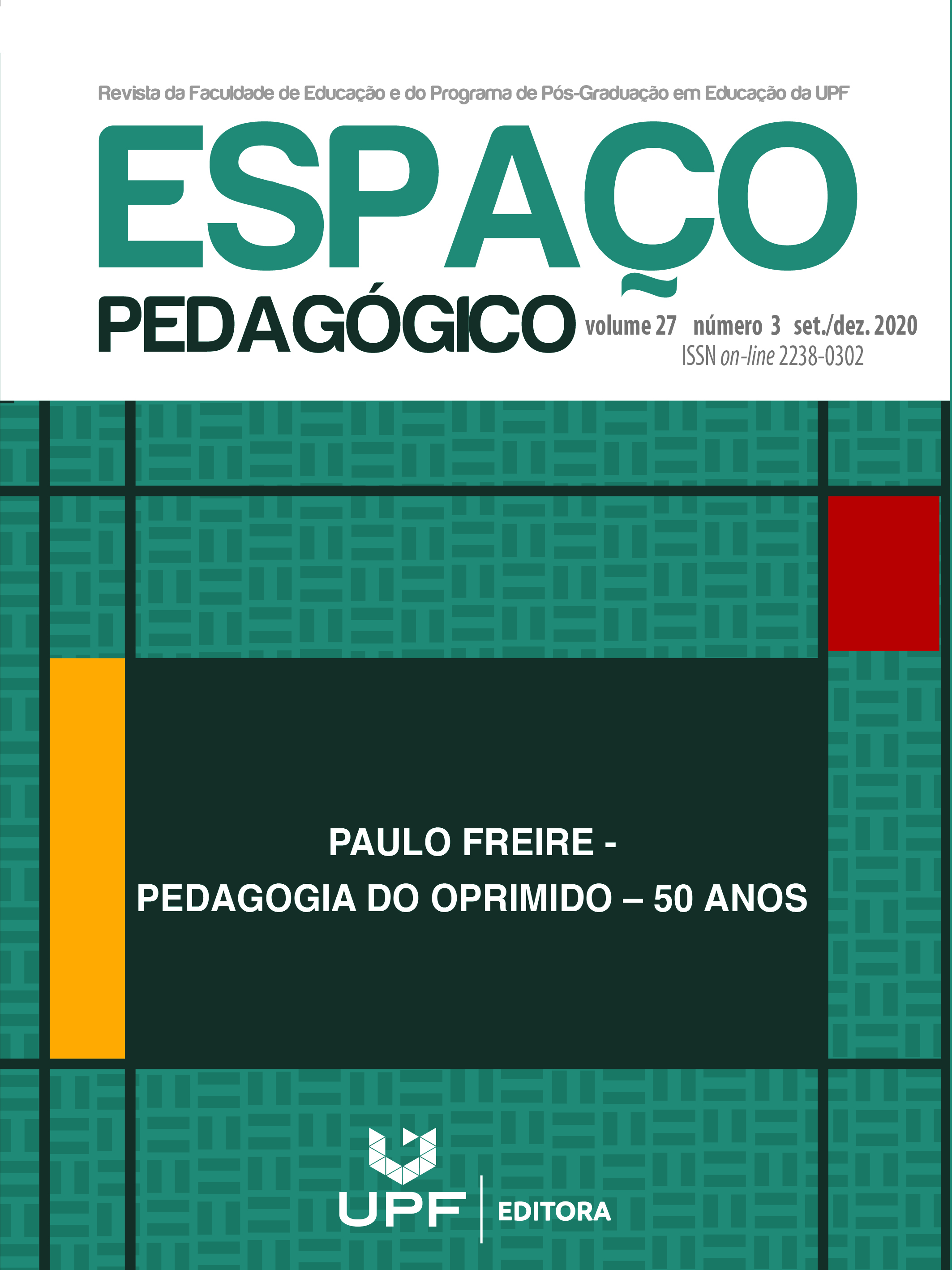The metaphor, Enem and democracy
DOI:
https://doi.org/10.5335/rep.v27i3.12385Keywords:
Democracy. Enem. Metaphor. Military Dictatorship.Abstract
The present work seeks to problematize the meanings of “democracy” in the editions of the National High School Exam (Enem). The objective of this work is inserted in the current educational and political context of the country, in which the guarantees of civil rights are threatened and in which we consider it necessary, in the position of teachers of Basic Education and Higher Education, to discuss the disputes for the meaning / validation of “democracy” category within a national curriculum policy evaluating access to undergraduate courses. The theoretical foundation was built on the intense debate between the theory of discourse and political theory, from Ernesto Laclau and his interlocutors. The methodological procedure for the analysis of the items of the Enem observed the structure and the proposal for feedback on the question, indicating how the meanings of “democracy” enabled or not enabled the production of active subjectivities. In general, our reflections were built from the speeches produced on the category “democracy” within the issues related to the theme of the Civil-Military Dictatorship (1964-1985) in the 2009 to 2017 editions. The initial hypothesis of this work observed that the Democracy is a powerful metaphor for combining content aimed at citizenship formation, still little explored by the exam. In terms of conclusion, we highlight that the concept of “democracy” was more restricted to a traditional conception of the right to vote, mobilizing few other senses. At the same time, we found that Enem reinforced the production of speeches that tended to antagonize the period of the Civil-Military Dictatorship with the period of the country’s political history that began in 1985, presenting few connective axes between such historical moments.



